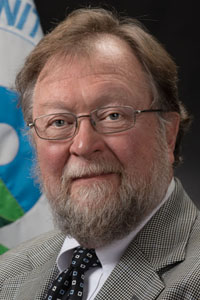EPA Administrator Gina McCarthy has ditched her science advisor, Glenn Paulson. The move came the day after she gave a major address at the National Academies of Science, telling the audience that “[t]he work we do together to preserve the integrity of our science is as critical as ever.” Dr. Paulson’s departure from this position is a loss for the agency, and the position should be filled quickly to ensure that progress on scientific integrity can continue.
In just two years as science advisor, Dr. Paulson made significant strides in advancing the EPA’s scientific integrity commitments. Under his leadership, the agency developed a widely-praised, improved peer review process for contractors; secured an important agreement with the EPA inspector general on how to investigate allegations of political interference in science; released the agency’s first scientific integrity annual report; created training materials for staff on the agency’s scientific integrity policy; convened an intra-agency scientific integrity committee; and met regularly with external stakeholders to examine progress. Most of this work happened before former UCS Senior Scientist Francesca Grifo was hired as the agency’s scientific integrity official.

The day after making a major science policy speech, EPA Administrator Gina McCarthy relieved EPA Science Advisor Glenn Paulson of his duties. This hole that should be filled quickly with someone who is as committed to scientific integrity reform as Dr. Paulson has been. Photo: EPA.
But to be sure, there’s a long way to go. It’s well known, for example, that the agency continues to prevent its scientists from speaking openly to the public or press, often requiring minders to be present and requiring clearance of the exact text of a response with public affairs officials. This bunker mentality creates unnecessary distrust of the agency and makes it more difficult for the public to access critical information about environmental health and safety, especially during crisis situations when timely access to information matters most.
This distrust can make it easier for baseless attacks on EPA to gain traction. For example, several members of Congress and talk show hosts have trumped up bogus charges of “secret science” in an effort to undermine EPA air pollution rules. In her speech to the NAS on Monday, Administrator McCarthy blasted elected officials and pundits who continue to vilify EPA scientists who have worked on critical air pollution studies that inform these rules and confuse the public about the results of that research.
“You can’t just claim the science isn’t real when it doesn’t align well with your political or financial interests,” McCarthy said. “Science is real and verifiable. With the health of our families and our futures at stake, the American people expect us to act on the facts, not spend precious time and taxpayer money refuting manufactured uncertainties.” (NRDC’s John Walke ably summarizes these attacks on EPA here).
Dr. Paulson, who still has one year left on his EPA contract, is expected to work with George Washington University School of Public Health Dean Lynn Goldman to develop the school’s offerings on regulatory policy. In an email to all EPA staff, Deputy Administrator Bob Perciasepe praised Dr. Paulson for his service, and named Robert Kavlock, who serves as the Deputy Assistant Administrator for Science at the EPA’s Office of Research and Development (ORD), as acting science advisor.
This could create a problem. The previous science advisor, Paul Anastas, also served as head of ORD. Former EPA Administrator Lisa Jackson then separated these two offices, giving the science advisor more autonomy and independence. This separation is a good thing, as a joint appointment makes it considerably more difficult for scientific integrity investigations to take place within ORD.
So let me add my thanks to Dr. Paulson for his service, and my hope that a new science advisor who is equally independent and equally supportive of scientific integrity reform will be in place soon. The agency, and the country, needs to build on his legacy.
